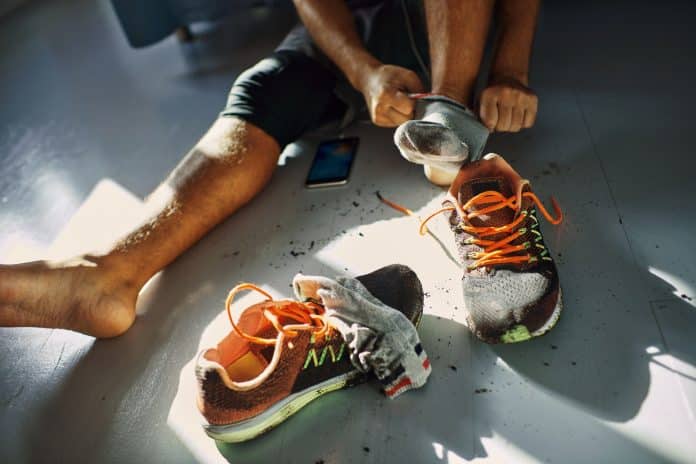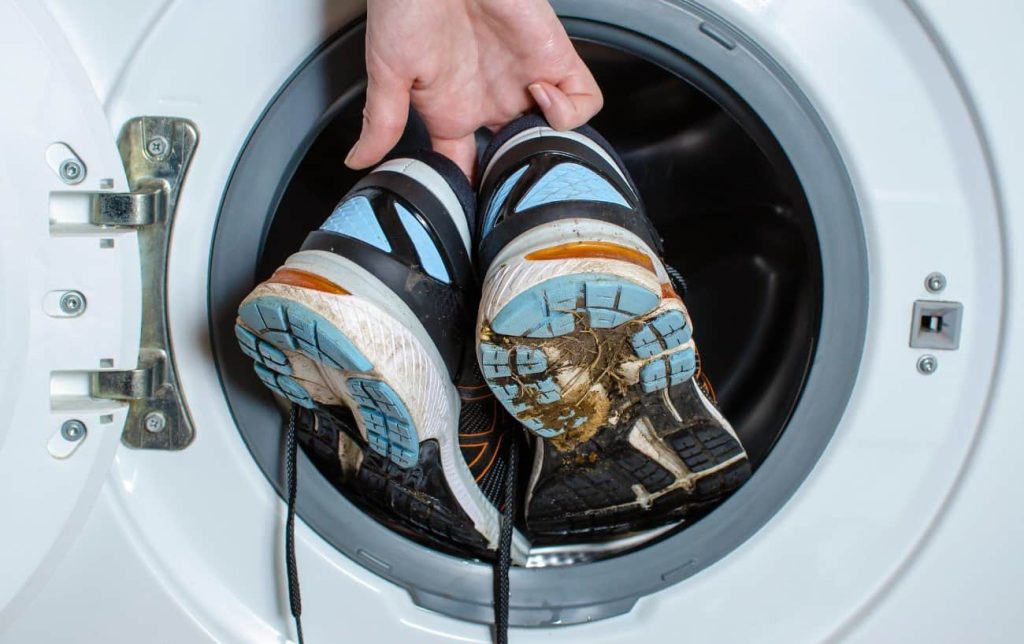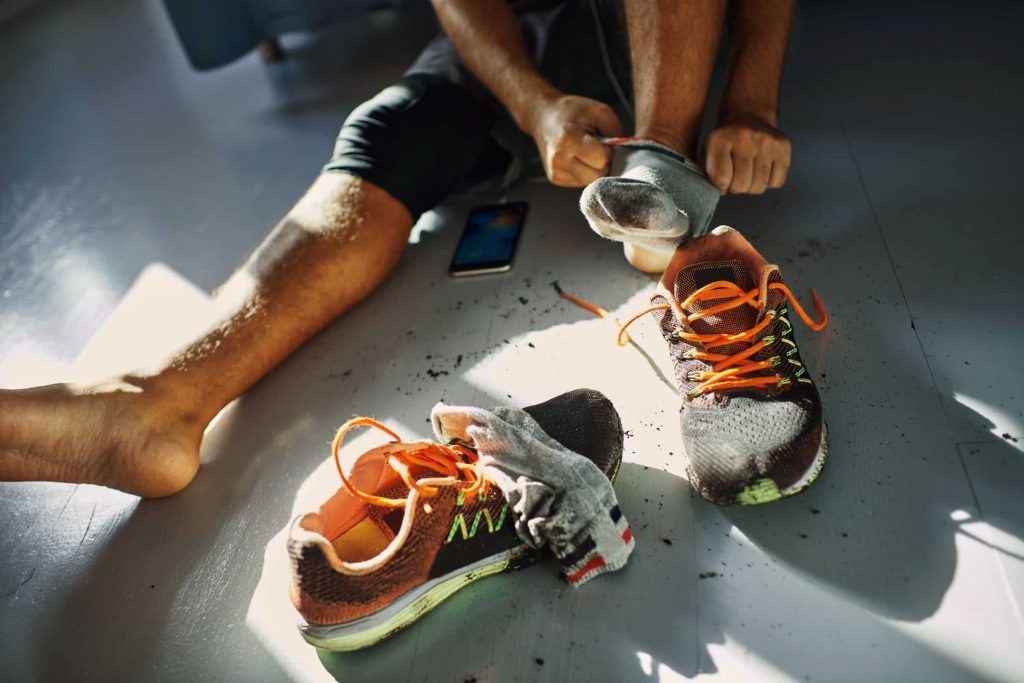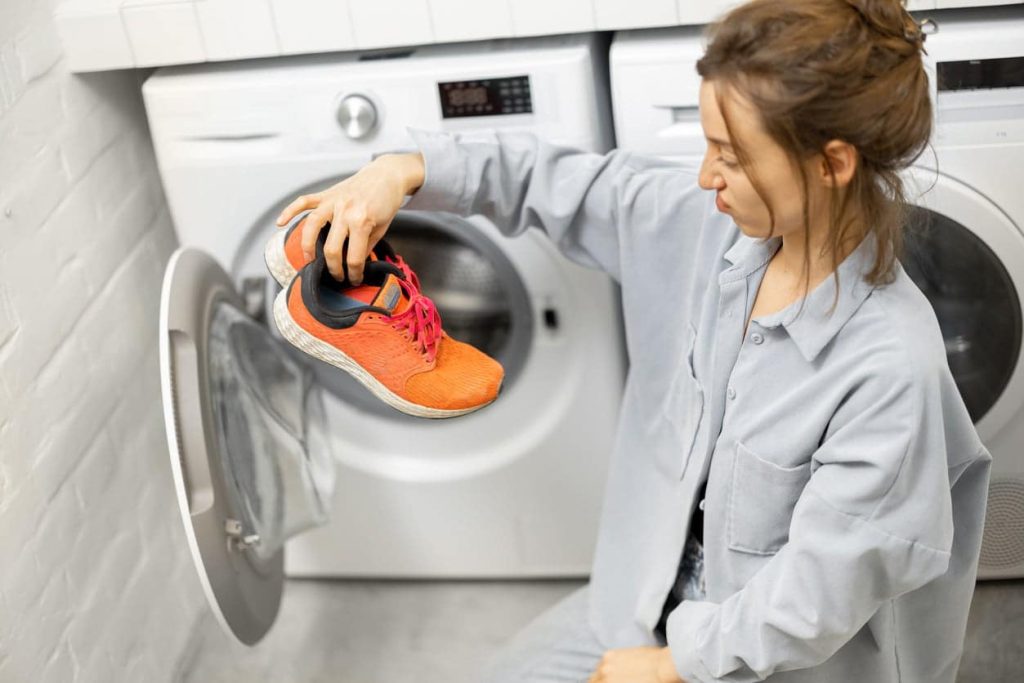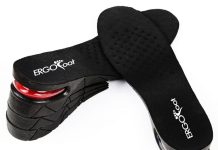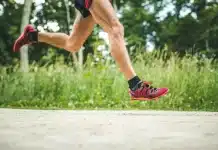If you’re a runner and have ever wondered about the best way to clean your running shoes, then look no further!
In this article, you will discover whether it’s safe to toss your beloved running shoes into the washing machine.
We’ll explore the dos and don’ts of machine-washing running shoes, discussing the potential risks, benefits, and steps for a successful wash.
Say goodbye to dirty shoes and hello to sparkling clean kicks in no time!
Can I Machine Wash My Running Shoes?
Introduction
Running shoes can get dirty and smelly after regular use, and it’s natural to wonder if you can toss them in the washing machine to clean them thoroughly. Machine washing can be a convenient method to remove dirt, mud, and smells from your running shoes.
However, it is essential to understand the materials used in running shoes, the potential risks involved, and the proper steps to take to ensure that your shoes are not damaged. In this article, we will explore the topic of machine-washing running shoes to help you make an informed decision.
Reasons for Wanting to Machine Wash Running Shoes
You may want to machine wash your running shoes for several reasons. Firstly, regular use of running shoes can accumulate dirt, dust, and mud on the exterior. Machine washing offers a quick and efficient way to remove these unsightly stains and restore the appearance of your shoes.
Additionally, machine washing can help eliminate odors that develop over time due to sweat and bacteria. Lastly, washing your running shoes can help prolong their lifespan by maintaining their cleanliness and functionality.
Understanding the materials used in running shoes is crucial to determine whether they are suitable for machine washing.
Understanding Running Shoe Materials
Running shoes are typically made using various materials that offer durability, flexibility, and breathability. Knowing these materials and how they react to machine washing is essential to minimize the risk of damage to your shoes.
Different Materials Used in Running Shoes
Running shoes are often made with synthetic fabrics, mesh, rubber, and foam. The upper portion of the shoe is usually constructed with mesh or synthetic materials that provide breathability.
The midsole, which offers cushioning and support, is commonly made of foam materials such as ethylene-vinyl acetate (EVA) or polyurethane (PU). The outsole, responsible for traction and durability, is typically made of durable rubber compounds. It is essential to consider how these materials may react to the machine-washing process.
How These Materials React to Machine Washing
While some running shoe materials can withstand machine washing, others may not. Synthetic fabrics like mesh are generally safe to be machine washed, as they are designed to withstand regular wear and tear.
If exposed to excessive water or agitation, foam midsoles may be more delicate and lose their cushioning properties. On the other hand, rubber outsoles are usually resilient and can withstand washing without significant issues. Understanding how specific materials react to machine washing will help you determine the level of care your shoes require.
Potential Damage to Running Shoes
Machine washing can potentially cause damage to running shoes if not done correctly. Excessive agitation and high temperatures can lead to deformation, separation of glued components, or a breakdown in cushioning materials.
Additionally, some running shoes have intricate designs or features that may not be compatible with machine washing. Following the appropriate steps and precautions is crucial to minimize the risk of damaging your running shoes while machine washing them.
Steps to Machine Wash Running Shoes
If you have determined that your running shoes are suitable for machine washing, follow these steps to ensure a successful cleaning process without causing any damage:
Preparation
Before starting the machine washing process, remove any loose dirt or debris from your running shoes by gently brushing them. This will prevent any excess dirt from clogging your washing machine or potentially damaging the shoes during the wash cycle.
Removing Insoles and Laces
Take out the insoles and laces from your running shoes. Insoles can be hand-washed separately or replaced if necessary. Machine washing laces separately will prevent tangling and ensure a thorough cleaning.
Check the Manufacturer’s Instructions
Always refer to the manufacturer’s instructions that came with your running shoes. They may contain specific recommendations regarding machine washing or provide alternative cleaning methods that are better suited for your shoes.
Using the Right Detergent
Choose a mild detergent that is suitable for delicate fabrics. Harsh detergents or bleaching agents can damage the materials of your running shoes. Avoid fabric softeners, as they can leave residue and affect the breathability of your shoes.
Selecting the Appropriate Washing Cycle
Set your washing machine to a gentle or delicate cycle, preferably with a low spin speed. This will minimize the stress on your running shoes and prevent potential damage.
Adding Shoes to the Washing Machine
Place your running shoes in a mesh laundry bag or pillowcase to protect them from excessive agitation. Use an additional towel or some clothes to balance the load in the washing machine and prevent the shoes from banging around.
Protecting the Shoes During the Wash
Consider adding a few towels to the wash to protect your running shoes further. The towels will act as buffers and reduce the impact of the shoes hitting against the sides of the washing machine.
Drying the Running Shoes
After the wash cycle, allow your running shoes to air dry naturally. Avoid direct heat sources like radiators or dryers, which can cause the materials to warp or shrink. Place them in a well-ventilated area and stuff them with newspaper or paper towels to help maintain their shape as they dry.
When Not to Machine Wash Running Shoes
While machine washing can be a convenient cleaning method, there are instances when it is not recommended:
Delicate or Expensive Running Shoes
If you have delicate or expensive running shoes with intricate designs or unique materials, it is best to avoid machine washing. These shoes may require more specific care or alternative cleaning methods to ensure longevity.
Certain Shoe Types or Materials
Some running shoes have specific features or materials unsuitable for machine washing. This could include shoes with LED components, built-in trackers, or special coatings. Always check the manufacturer’s instructions or consult a professional if unsure.
Presence of Orthotics or Custom Insoles
If you utilize orthotics or have custom insoles in your running shoes, it is advisable to hand wash them separately to prevent any damage or alteration to their shape. Machine washing may affect the integrity and effectiveness of these personalized inserts.
Alternative Methods of Cleaning Running Shoes
If machine washing is not suitable for your running shoes, there are alternative methods you can consider:
Hand Washing
Hand washing involves using a soft brush, mild detergent, and warm water to clean your running shoes. Gently scrub the shoes to remove dirt and stains, paying attention to areas that accumulate the most grime. Rinse thoroughly and air dry.
Spot Cleaning
For small areas that require attention, spot cleaning can be effective. Use a mild cleaning solution and a clean cloth or sponge to remove stains gently. Take care not to oversaturate the area; allow it to air dry after cleaning.
Using a Gentle Cleaning Solution
If you prefer to avoid water altogether, gentle cleaning solutions are available specifically designed for cleaning running shoes. These solutions usually come in spray form and can be used to spot clean or freshen up your shoes between washes.
Tips for Maintaining Running Shoes
Proper care and maintenance of your running shoes can extend their lifespan and keep them in optimal condition. Consider these tips:
Regular Cleaning Routine
Regularly clean to prevent dirt and grime from building up on your running shoes. Wipe them down after each run with a damp cloth to remove excess dirt and sweat. This will help prevent stains and unpleasant odors.
Proper Storage
Store your running shoes in a cool and dry place to maintain their shape and prevent mold or mildew growth. Avoid keeping them in direct sunlight or damp environments, as these conditions can accelerate wear and tear.
Avoiding Extreme Temperatures
Extreme heat or cold can cause damage to the materials of your running shoes. Avoid leaving them in hot cars or exposing them to freezing temperatures for prolonged periods. Optimal storage conditions will help preserve the integrity of your shoes.
Rotating Between Multiple Pairs
Consider having multiple pairs of running shoes and rotating them regularly. This allows each pair to fully dry and recover between runs, reducing the buildup of sweat and moisture that can lead to unpleasant odors.
Conclusion
Machine washing can be a convenient and effective method to clean your running shoes, but it is essential to approach it cautiously.
Understanding the materials used in your shoes, following proper washing steps, and knowing when to machine wash shouldn’t be critical factors in ensuring the longevity of your running shoes.
If machine washing is not suitable, alternative cleaning methods can be used to keep your shoes clean and fresh.
Maintaining a regular cleaning routine and following proper care practices can keep your running shoes in excellent condition and allow you to enjoy many miles of comfortable runs.

